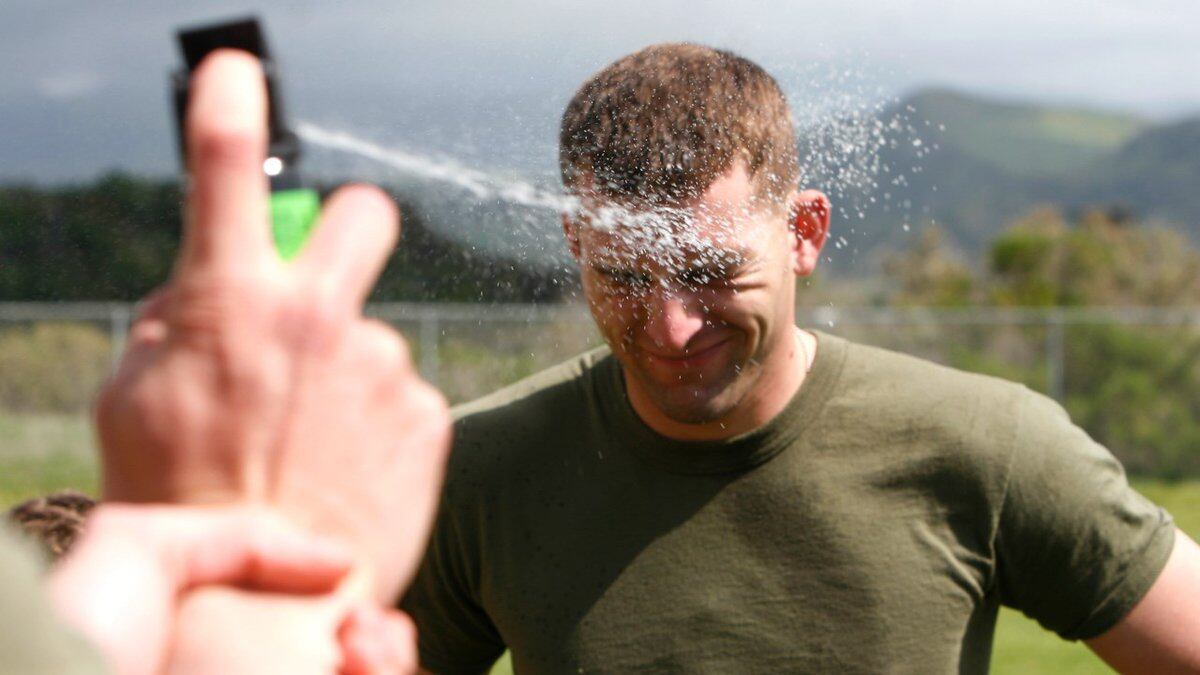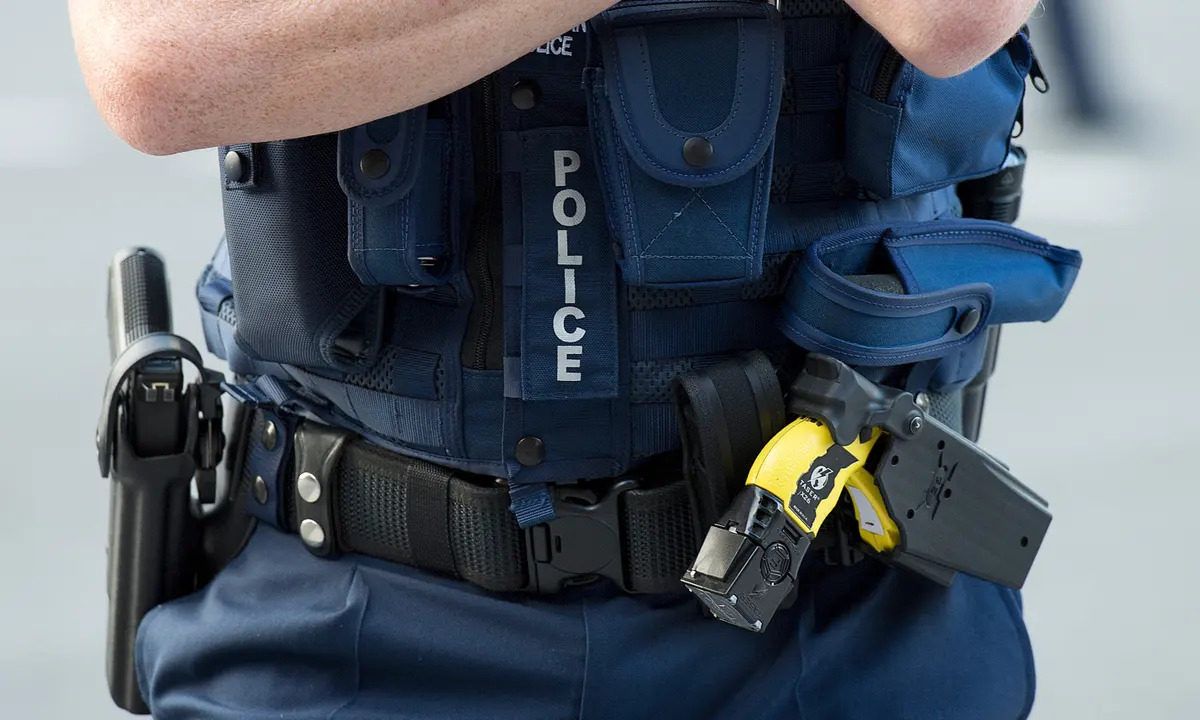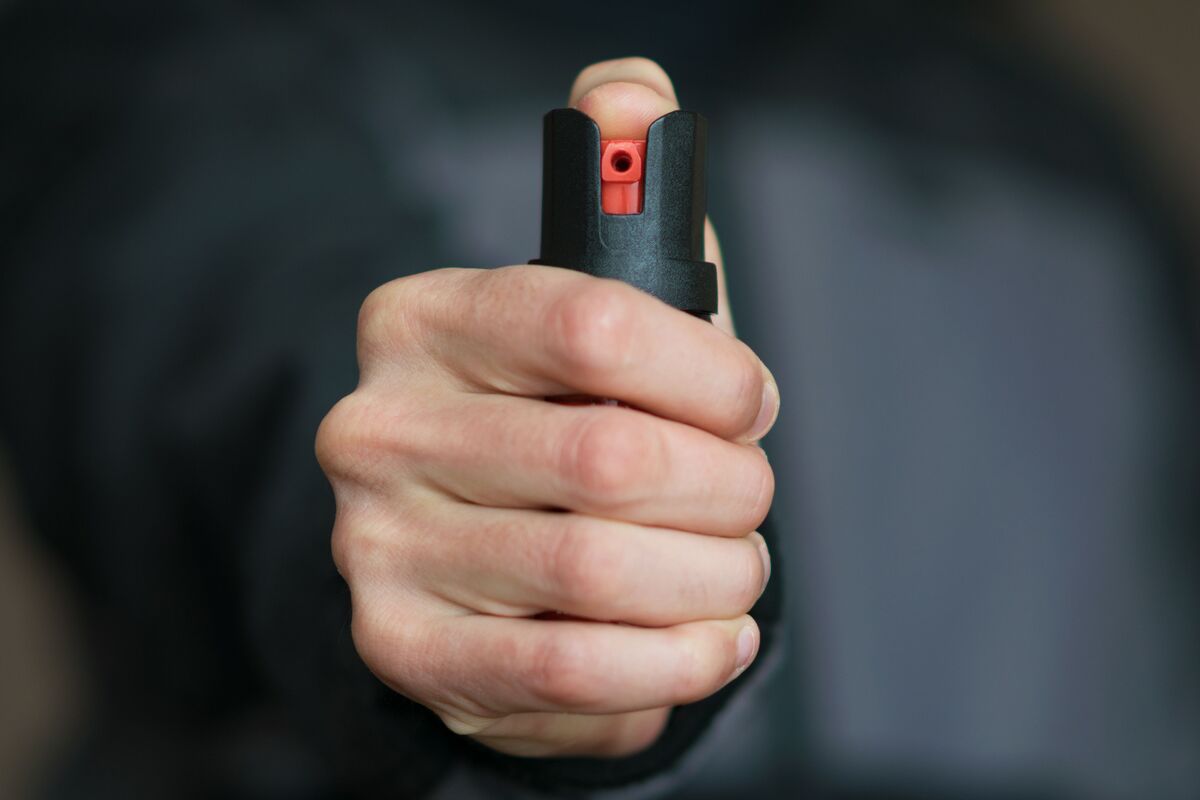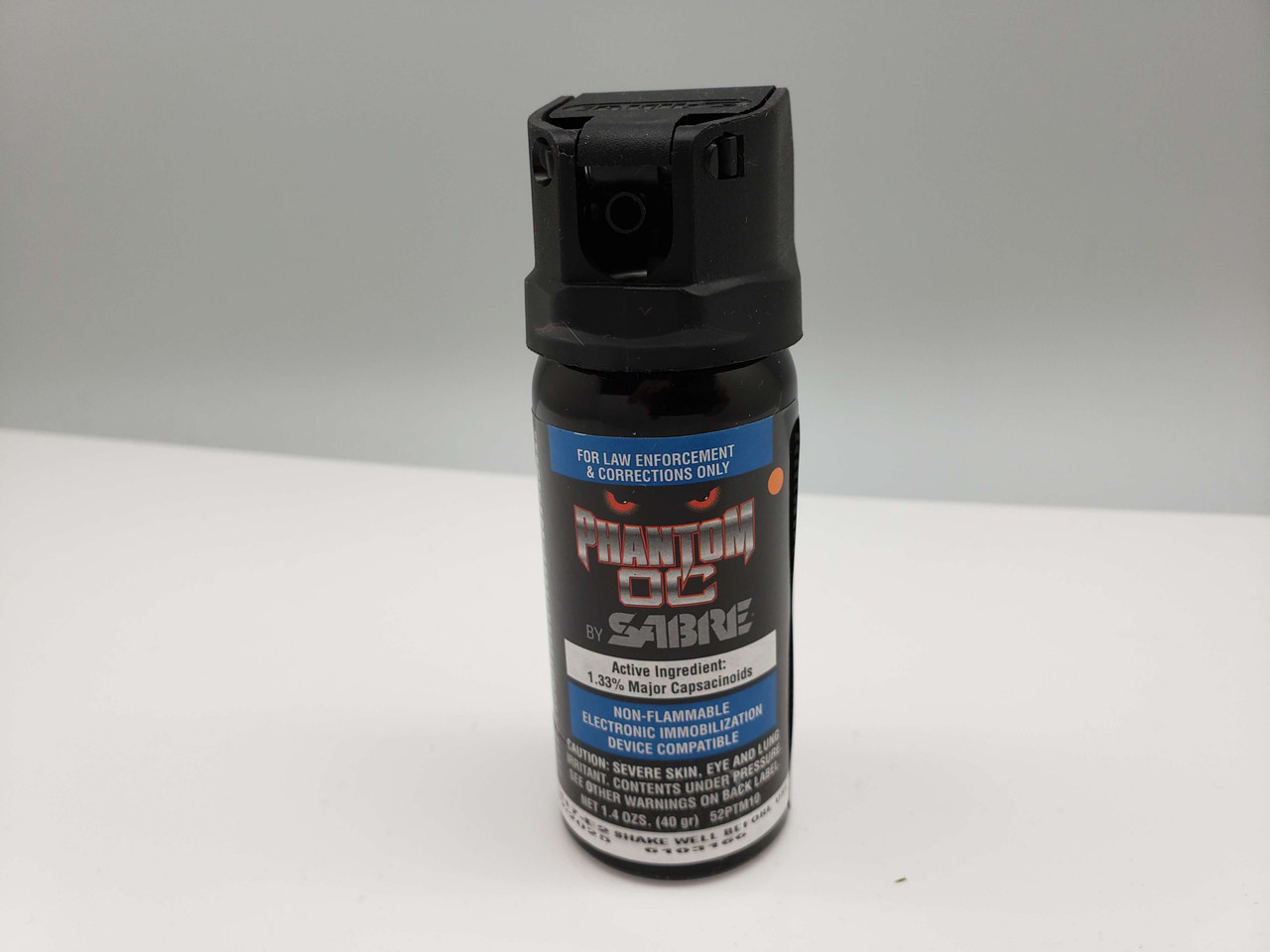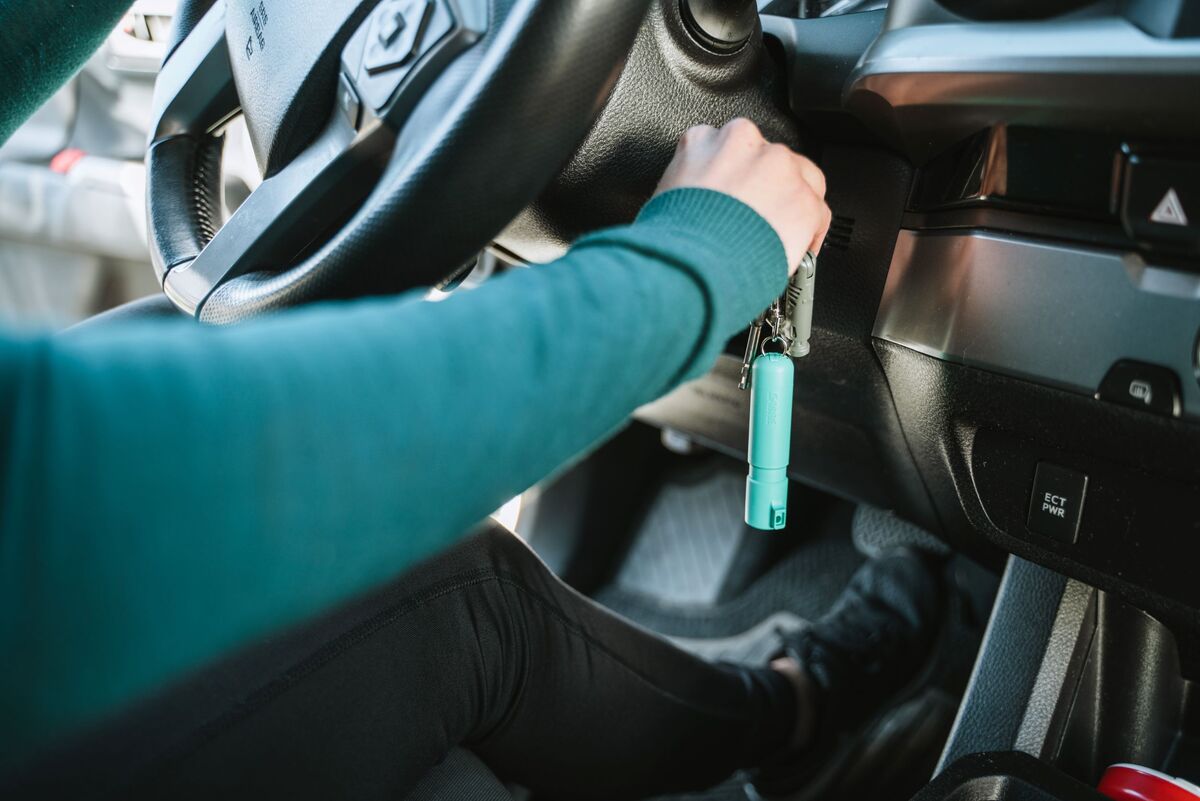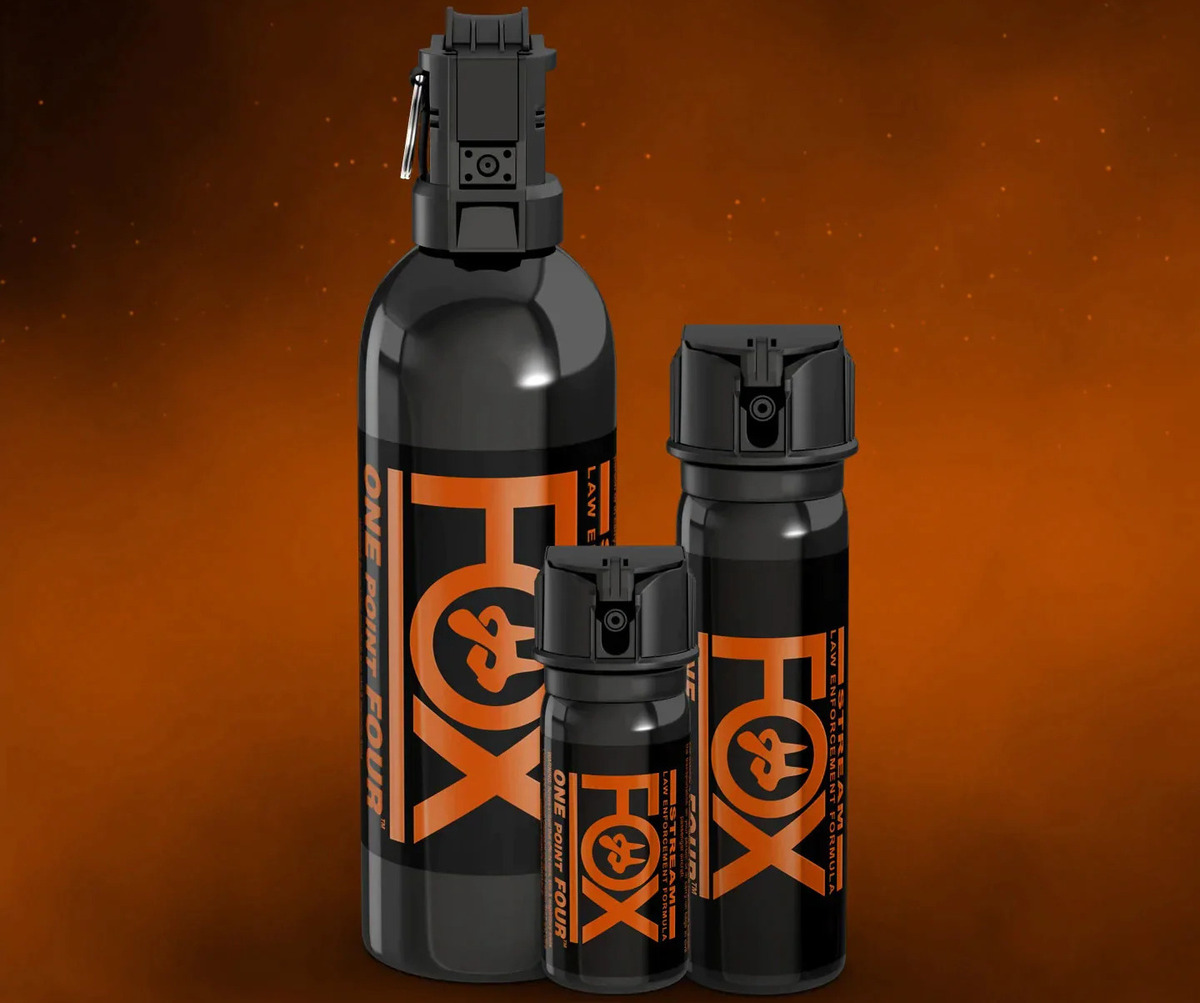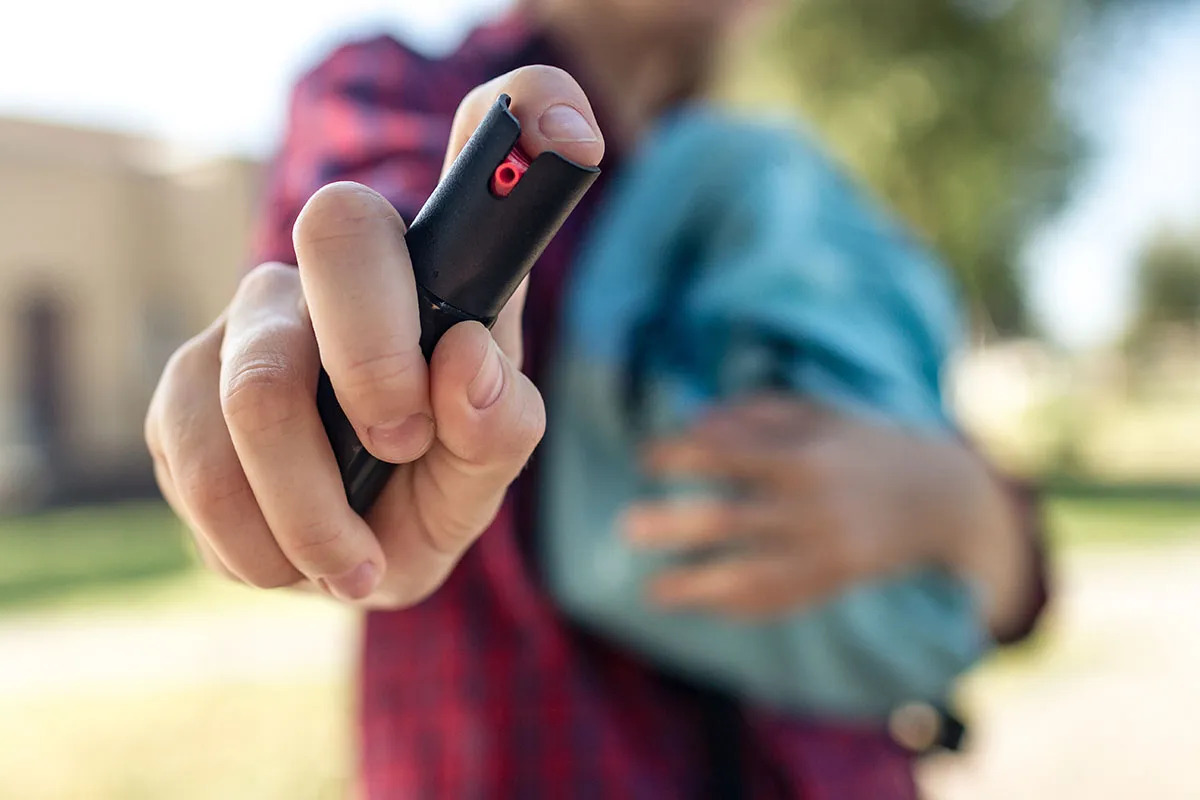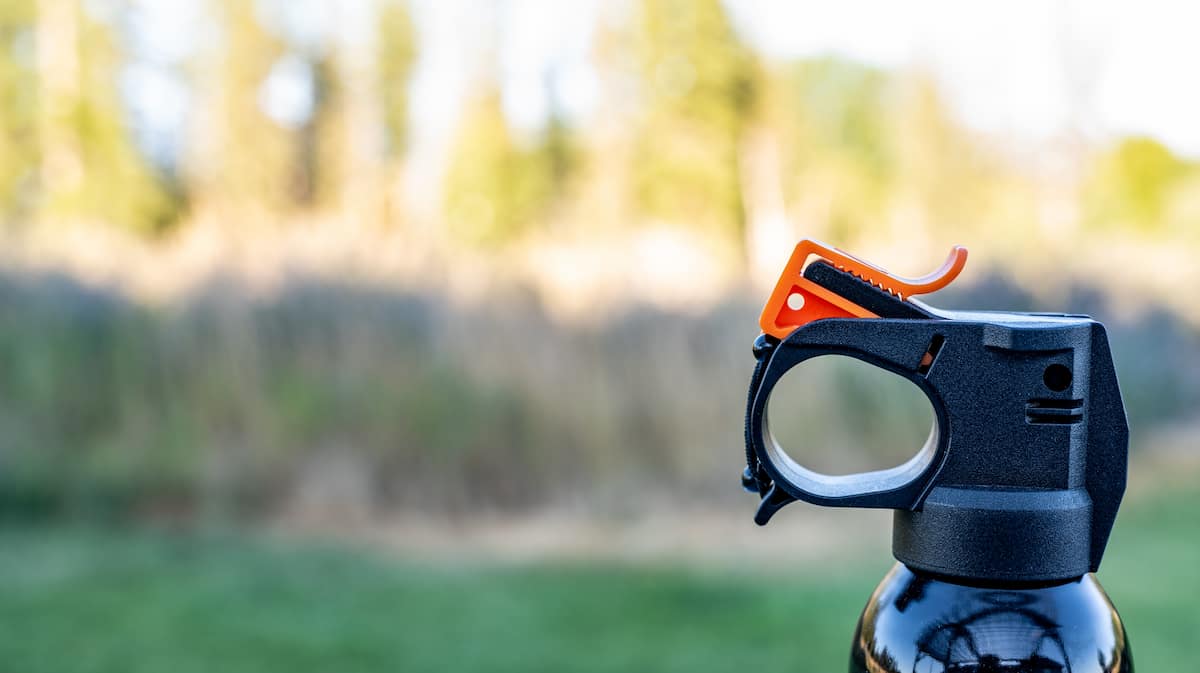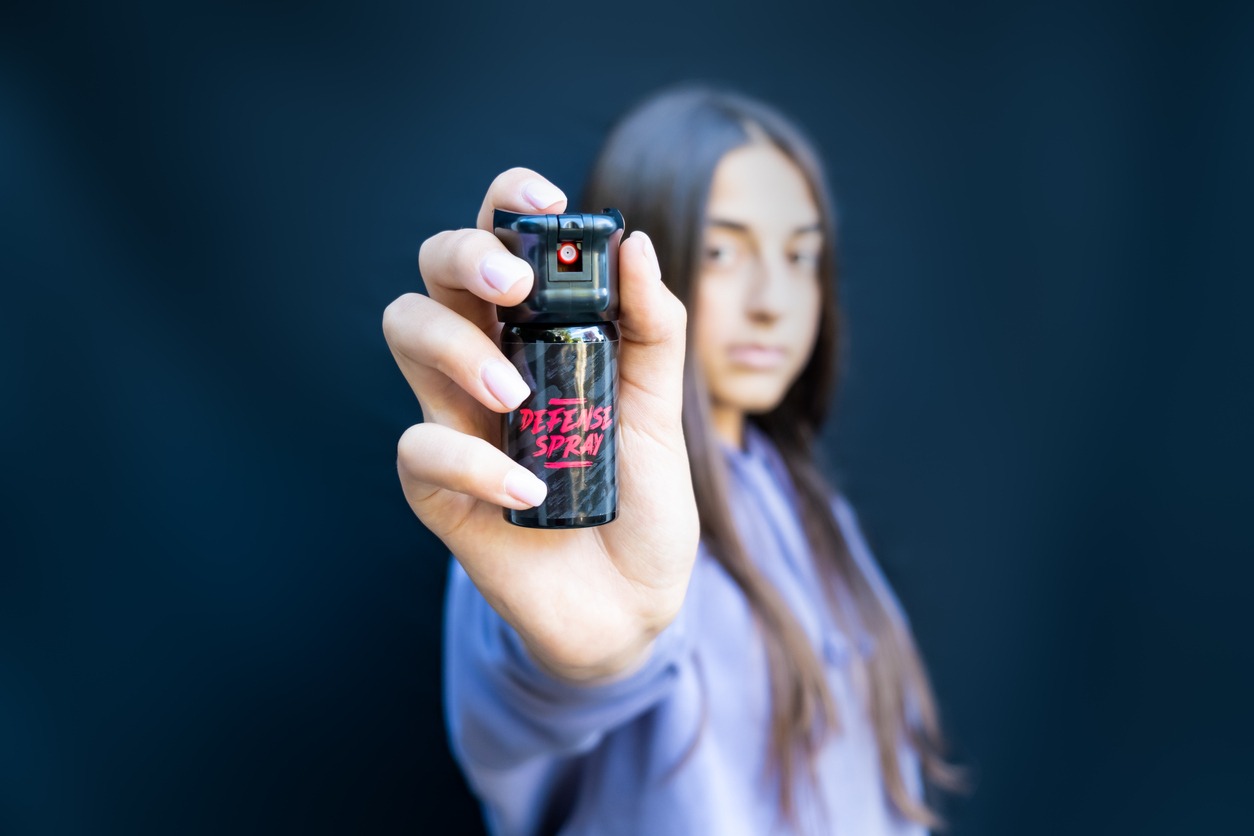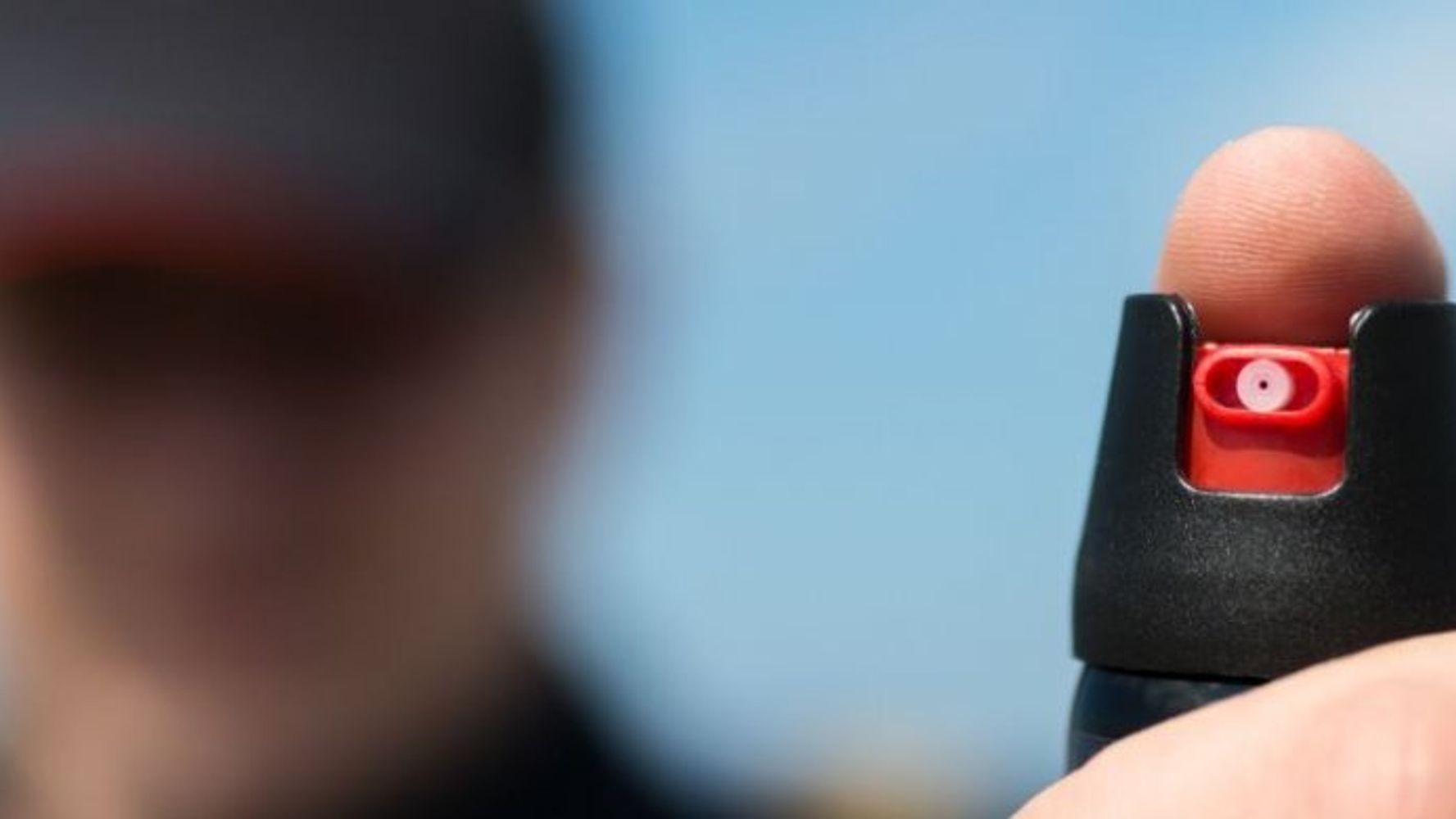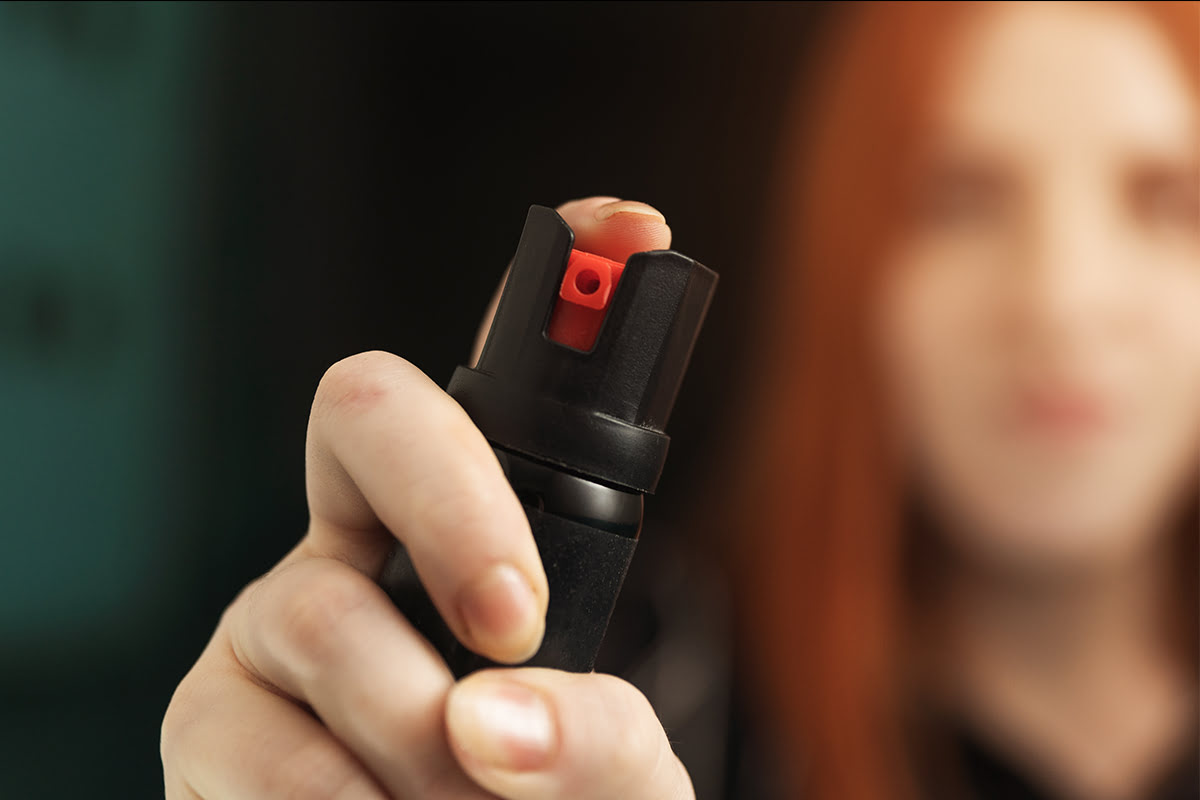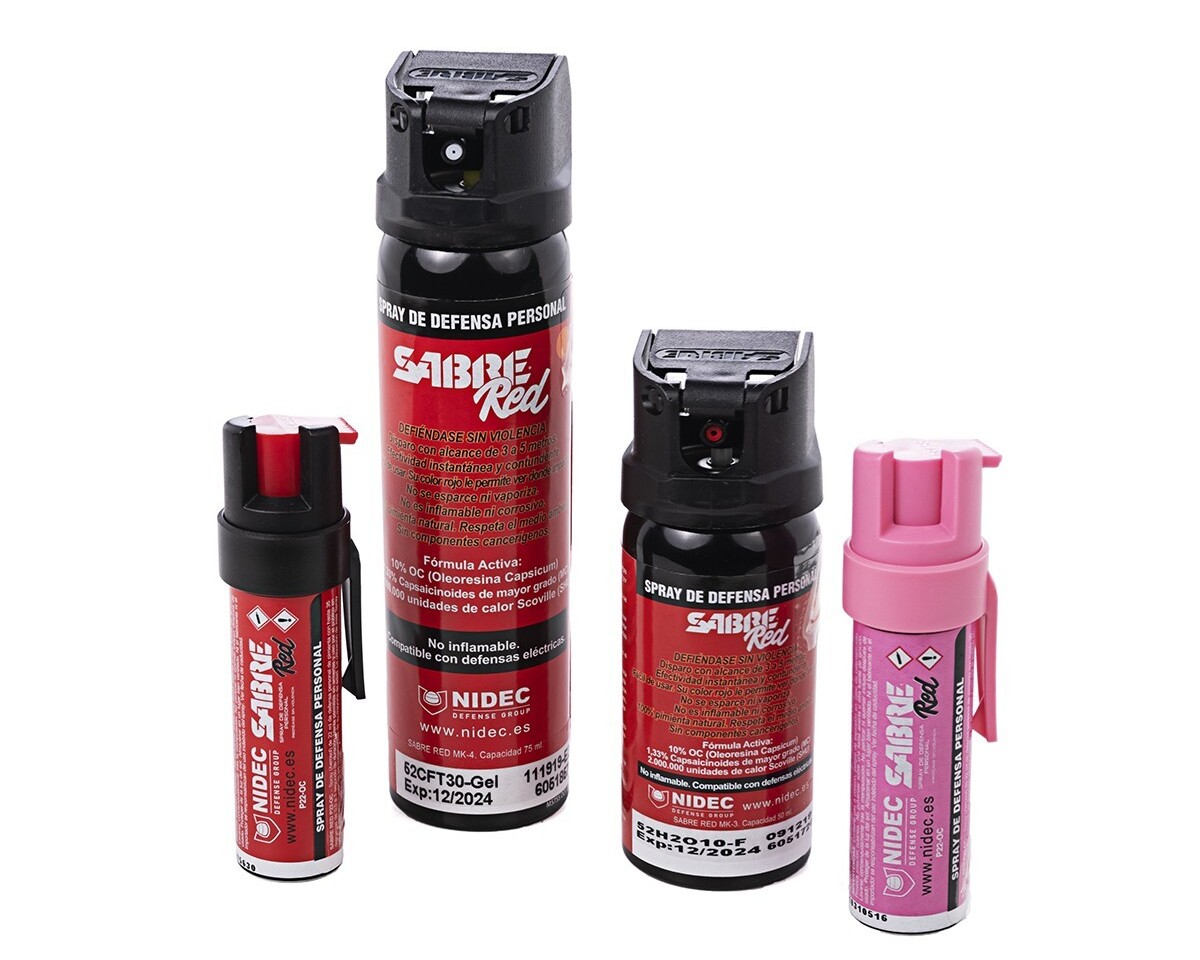Home>Home Security and Surveillance>What Does Expired Pepper Spray Do


Home Security and Surveillance
What Does Expired Pepper Spray Do
Modified: March 6, 2024
Discover the potential dangers of expired pepper spray and its impact on home security and surveillance. Find out what happens when your self-defense tools lose their effectiveness.
(Many of the links in this article redirect to a specific reviewed product. Your purchase of these products through affiliate links helps to generate commission for Storables.com, at no extra cost. Learn more)
Introduction
Home security and personal safety are paramount concerns for individuals and families alike. With the ever-increasing crime rates, it’s important to take proactive measures to protect ourselves and our loved ones. One popular self-defense option is pepper spray, a non-lethal weapon designed to incapacitate an attacker temporarily. However, like any product, pepper spray has an expiration date. In this article, we will explore what happens when pepper spray expires and why it’s important to be aware of its shelf life.
Pepper spray, also known as OC spray (Oleoresin Capsicum), is derived from the same compound found in hot peppers. When sprayed on an assailant, it causes inflammation and irritation to the eyes, skin, nose, and respiratory system, impairing their ability to continue the attack. It provides a valuable tool for personal safety, especially in situations where physical strength or confrontation is not an option.
However, it’s crucial to understand that pepper spray, like any product, has a limited shelf life. Over time, the effectiveness of the spray can diminish, making it less reliable when you need it most. This expiration date is influenced by several factors, including the formulation of the spray, storage conditions, and the manufacturer’s guidelines.
When pepper spray reaches its expiration date, its chemical composition undergoes changes, causing a significant reduction in its potency. The main component of pepper spray, capsaicin, which is responsible for its irritating effect, can deteriorate over time. This leads to a decreased concentration of capsaicinoids, the active ingredients that make pepper spray effective. As a result, the spray may not deliver the desired impact and may fail to immobilize the attacker effectively.
Additionally, other components, such as propellant agents or preservatives, present in the pepper spray can break down or lose their effectiveness. This further contributes to the deterioration of the product and increases the likelihood of uncertain results when using expired pepper spray. It’s important to note that expired pepper spray may not have any visible signs of spoilage, making it difficult to determine its diminished effectiveness without proper testing.
Using expired pepper spray can have serious consequences. In emergency situations, you rely on self-defense tools to provide temporary relief and create an opportunity to escape or seek help. However, expired pepper spray may not deliver the intended effect, leaving you vulnerable and open to potential harm. It’s crucial to be aware of the risks associated with using expired pepper spray and take necessary precautions to ensure personal safety.
In the following sections, we will delve deeper into the changes that occur when pepper spray expires, the potential risks of using expired spray, and best practices for disposing of expired pepper spray. By understanding these factors, you will be better equipped to make informed decisions about your self-defense options and maintain the highest level of personal safety.
Key Takeaways:
- Expired pepper spray loses its potency, making it less effective in immobilizing attackers. Using expired spray can pose risks, compromise personal safety, and violate local laws.
- Proper disposal of expired pepper spray is crucial to prevent accidental harm and environmental damage. Stay informed, replace expired products, and prioritize personal safety.
Read more: What To Do When Sprayed With Pepper Spray
Understanding Pepper Spray
Pepper spray, sometimes referred to as OC spray (Oleoresin Capsicum), is a powerful self-defense tool that uses a chemical compound derived from hot peppers to incapacitate an attacker. It is available in various forms, including aerosol cans, keychain canisters, and even pepper spray guns.
The active ingredient in pepper spray is capsaicin, a naturally occurring compound responsible for the intense heat found in chili peppers. When sprayed on an assailant, capsaicin causes immediate irritation and inflammation, resulting in temporary incapacitation.
Pepper spray is designed to affect the respiratory and ocular systems of the attacker. It causes intense burning, pain, and swelling in the eyes, leading to temporary blindness. It also irritates the nose and throat, causing uncontrollable coughing, difficulty breathing, and a strong burning sensation.
The effects of pepper spray are typically immediate and intense, providing the victim with precious seconds to escape or seek help. The severity of the effects can vary depending on the strength of the spray, the size of the dose, and individual sensitivity.
It’s important to note that pepper spray is a non-lethal weapon, meaning it is designed to disable an attacker without causing long-term injury or death. However, it should still be used responsibly and in accordance with local laws and regulations.
When purchasing pepper spray, it’s essential to choose a reputable brand that meets legal requirements and undergoes rigorous testing to ensure reliability and effectiveness. Look for products that have a high concentration of capsaicinoids, as these are the active compounds responsible for the spray’s effectiveness.
It’s also worth considering the range and capacity of the pepper spray. Some sprays have a longer-range, which can be useful in situations where the attacker is at a greater distance. Additionally, the number of shots or bursts the canister can deliver should be taken into account, as you may need to use it multiple times in a high-stress situation.
Before using pepper spray, it’s important to familiarize yourself with its operation. Practicing how to hold and aim the canister, as well as understanding the activation mechanism, can significantly increase your confidence and effectiveness in deploying it when necessary.
Pepper spray is an effective self-defense tool when used correctly and within legal boundaries. However, it’s vital to understand its limitations and take necessary precautions to ensure the safety of both yourself and others.
What Happens When Pepper Spray Expires?
Like any product, pepper spray has a limited shelf life, and it is important to be aware of its expiration date. When pepper spray expires, several significant changes occur that can impact its effectiveness and reliability.
One of the main changes that occur when pepper spray reaches its expiration date is a reduction in the concentration of capsaicinoids, the active ingredients responsible for the spray’s effectiveness. Over time, the capsaicin compounds can break down, leading to a diminished potency. This means that the spray may not have the same immobilizing effect on an attacker as it would when it is fresh.
Expiration also affects the other components of pepper spray, such as propellants and preservatives. These additional ingredients can break down or lose their effectiveness over time, further contributing to the deterioration of the product’s overall quality. The chemical changes that occur during the expiration process can impact the spray’s ability to deliver a consistent and reliable stream or burst.
Additionally, environmental factors can accelerate the expiration process of pepper spray. Exposure to high temperatures, humidity, or extreme cold can cause the active ingredients to degrade more rapidly, reducing the overall effectiveness of the spray.
Using expired pepper spray can have serious consequences in a self-defense situation. The diminished potency and potential inconsistency of the spray increase the risk of failure to immobilize an attacker effectively. This can leave you vulnerable and reduce your ability to create a window of opportunity to escape or seek help.
Expired pepper spray may also pose risks to the user. The chemical breakdown could lead to unpredictable results, including uneven dispersal of the irritants or potential clogging of the spray nozzle. These factors can potentially hinder your ability to use the spray or cause it to malfunction when you need it most.
It’s important to note that the expiration date on pepper spray products is not arbitrary or just a suggestion. Manufacturers determine expiration dates based on extensive testing and analysis, ensuring the effectiveness and reliability of their products within a specified timeframe.
To ensure your personal safety and the effectiveness of your self-defense tools, it is crucial to check the expiration date on your pepper spray regularly. If your pepper spray has expired, it is recommended to replace it with a fresh canister to maintain the highest level of protection.
In the next section, we will discuss the potential risks associated with using expired pepper spray to further emphasize the importance of proper disposal and regular replacement of your self-defense products.
Changes in Effectiveness
When pepper spray reaches its expiration date, there are significant changes in its effectiveness that can impact its reliability as a self-defense tool. These changes occur due to the break down of key components and the degradation of active ingredients.
One of the primary changes is a reduction in the concentration of capsaicinoids, the active compounds responsible for the spray’s effectiveness. Over time, capsaicinoids can degrade and lose their potency, resulting in a weaker effect on an attacker. The diminished concentration of capsaicinoids means that the spray may not cause the same level of irritation and incapacitation as fresh pepper spray.
Expired pepper spray may also exhibit inconsistency in its dispersal pattern or stream quality. The breakdown of propellants and other additives can lead to uneven distribution of the irritants, causing potential hot spots or areas of weak spray coverage. This inconsistency can result in reduced effectiveness and a lower likelihood of immobilizing an attacker reliably.
The expiration process can also impact the spray’s ability to deliver the irritants in a consistent manner. The spray may become spotty, clogged, or produce an erratic stream rather than a steady burst. This can make it difficult to aim accurately and ensure maximum coverage on an attacker.
Furthermore, expired pepper spray may have decreased range and shorter shelf life. The propellant agents, such as compressed air or nitrogen, can lose their effectiveness over time, leading to a shorter spray distance. This reduced range can limit your ability to deploy the spray effectively, potentially putting you at a greater risk in a dangerous situation.
It’s important to note that expired pepper spray may not show any visible signs of spoilage or degradation. The canister may still appear intact and undamaged. This makes it even more critical to keep track of the expiration date and replace the pepper spray according to the manufacturer’s recommendations to ensure its optimal effectiveness.
To maximize the efficacy of your pepper spray and ensure your personal safety, it is crucial to regularly check the expiration date. When replacing your expired spray, select a reputable brand and follow the proper storage guidelines to maintain the highest level of effectiveness.
In the next section, we will outline the potential risks of using expired pepper spray to provide further insight into why proper disposal and replacement are essential.
Expired pepper spray may lose its potency and effectiveness. It’s important to regularly check the expiration date and replace it if necessary to ensure it works when needed.
Potential Risks of Using Expired Pepper Spray
Using expired pepper spray can pose serious risks and potentially compromise your personal safety in a self-defense situation. It’s important to be aware of these risks to understand why proper disposal and replacement of expired pepper spray are crucial.
The first and most significant risk is the decreased effectiveness of the spray. As mentioned earlier, expired pepper spray may have a reduced concentration of capsaicinoids, the active compounds responsible for its effectiveness. A weaker concentration means that the spray may not have the desired impact on an attacker, potentially giving them the opportunity to continue their assault.
Inconsistent dispersal patterns and stream quality are additional risks associated with expired pepper spray. The breakdown of propellants and other components can lead to uneven distribution of the irritants, resulting in areas of weak spray coverage or potential clogging of the nozzle. This can reduce the spray’s ability to immobilize an attacker or hinder your ability to aim accurately, decreasing its overall effectiveness.
Another risk of using expired pepper spray is the potential for unpredictable results. Chemical breakdowns and alterations in the composition of the spray can lead to uncertain outcomes. The spray may not act as expected, causing unexpected reactions or erratic behavior in the attacker. This uncertainty can create additional dangers and increase the risks to your personal safety.
Furthermore, relying on expired pepper spray may provide a false sense of security, leading you to believe you are adequately protected when, in reality, the spray has diminished effectiveness. This false sense of security can make you less vigilant and more susceptible to potential harm, as you may rely heavily on a tool that is no longer reliable.
Using expired pepper spray also runs the risk of unintentional harm to bystanders or innocent individuals nearby. The reduced range and potential inconsistencies in dispersal may increase the chances of the spray affecting unintended targets. This is a significant concern, as you could inadvertently cause harm to someone who is not involved in the altercation, potentially leading to legal consequences or exacerbating the situation.
Lastly, using expired pepper spray may violate local laws and regulations. Many jurisdictions have specific guidelines regarding the expiration and disposal of self-defense products. Using expired pepper spray could result in legal repercussions if it is found that you knowingly used an expired product or failed to follow proper protocols for disposal.
To avoid these potential risks and ensure your personal safety, it is essential to regularly check the expiration date of your pepper spray and replace it as recommended by the manufacturer. Remember, your self-defense tools should be reliable and effective, and using expired pepper spray compromises that reliability.
In the next section, we will discuss the best practices for disposing of expired pepper spray to ensure the proper handling of these potentially hazardous products.
Best Practices for Disposing of Expired Pepper Spray
When your pepper spray reaches its expiration date, it is crucial to dispose of it properly to ensure the safety of yourself and others. Improper disposal can lead to accidental discharge or harm to the environment. Follow these best practices to dispose of expired pepper spray:
1. Check local regulations: Before disposing of your expired pepper spray, familiarize yourself with local laws and regulations regarding the disposal of self-defense products. Some areas have specific guidelines or designated drop-off locations for hazardous materials.
2. Contact local authorities: If you are unsure about the proper disposal methods, contact your local law enforcement agency or waste management authority. They can provide information on approved disposal facilities or hazardous waste collection days.
3. Render the canister unusable: Safely render the pepper spray canister inoperable to prevent accidental discharge. You can do this by removing the nozzle or puncturing the canister to release the pressure. Take care to follow any manufacturer instructions for safe deactivation.
4. Secure the canister: Place the deactivated pepper spray canister in a sturdy, sealed bag to prevent leaks or spills during transportation. Use a bag that is specifically designed for hazardous materials if possible.
5. Label the bag: Clearly label the bag as “Expired Pepper Spray” or “Hazardous Material” to alert others to its contents. This helps ensure proper handling and prevents potential accidents or confusion.
6. Dispose with hazardous waste: Take the labeled bag to a designated hazardous waste collection center or follow the local guidelines for hazardous material disposal. These facilities have the proper infrastructure to manage and dispose of potentially dangerous materials safely.
7. Recycling option: Some communities may offer recycling programs for certain types of aerosol cans. Check with your local recycling center to see if they accept aerosol cans and follow their specific instructions for recycling.
8. Education and awareness: Share your knowledge about proper disposal practices with friends and family. Encourage them to check the expiration dates on their pepper spray and dispose of it correctly when it becomes expired.
It’s important to remember that expired pepper spray should never be thrown in the regular trash or recycling bin. Improper disposal can lead to accidental discharge or harm to waste management workers or the environment.
By following these best practices for disposing of expired pepper spray, you can contribute to a safer environment and prevent potential accidents. Always prioritize the safety of yourself, others, and the environment when handling hazardous materials.
Finally, in the concluding section, we will summarize the key points discussed in this article and emphasize the importance of staying informed and proactive about personal safety.
Conclusion
In conclusion, pepper spray is a popular self-defense tool that can provide temporary relief and protection in dangerous situations. However, it is crucial to be aware of the expiration date of your pepper spray and understand the implications of using expired products.
Expired pepper spray undergoes changes that significantly impact its effectiveness. The concentration of capsaicinoids, the active ingredients responsible for its effectiveness, diminishes over time, resulting in a weakened ability to immobilize an attacker. Inconsistent dispersal patterns and stream quality further decrease the spray’s reliability.
Using expired pepper spray carries serious risks, including the potential for ineffective self-defense, unpredictable results, and unintentional harm to innocent individuals. It may also violate local laws and regulations, leading to legal consequences.
To ensure personal safety, it is essential to replace expired pepper spray according to the manufacturer’s recommendations. Proper disposal is also crucial to prevent accidental discharge and environmental harm. Check local regulations, contact authorities if needed, and safely render the canister inoperable before disposal.
Staying informed and proactive about personal safety is vital. Regularly check the expiration date of your self-defense products, including pepper spray, and consider refreshing your knowledge of self-defense techniques and tools.
Remember, the goal of using self-defense tools like pepper spray is to create an opportunity to escape or seek help. By understanding the importance of expiration dates, actively replacing expired products, and disposing of them properly, you can ensure that your self-defense measures remain reliable and effective when you need them most.
Stay vigilant, stay informed, and take action to protect yourself and your loved ones. Your personal safety is priceless, and being prepared is the first step towards a secure and confident life.
Frequently Asked Questions about What Does Expired Pepper Spray Do
Was this page helpful?
At Storables.com, we guarantee accurate and reliable information. Our content, validated by Expert Board Contributors, is crafted following stringent Editorial Policies. We're committed to providing you with well-researched, expert-backed insights for all your informational needs.
